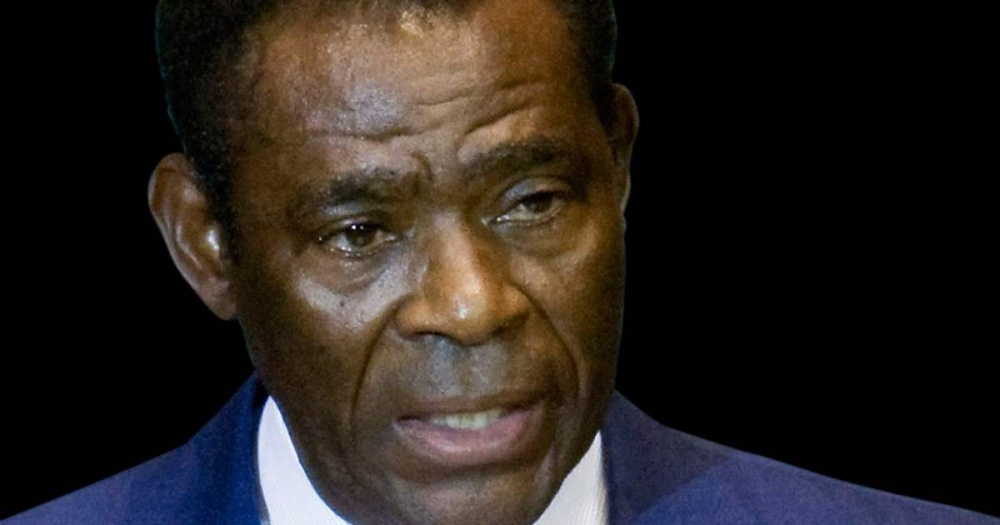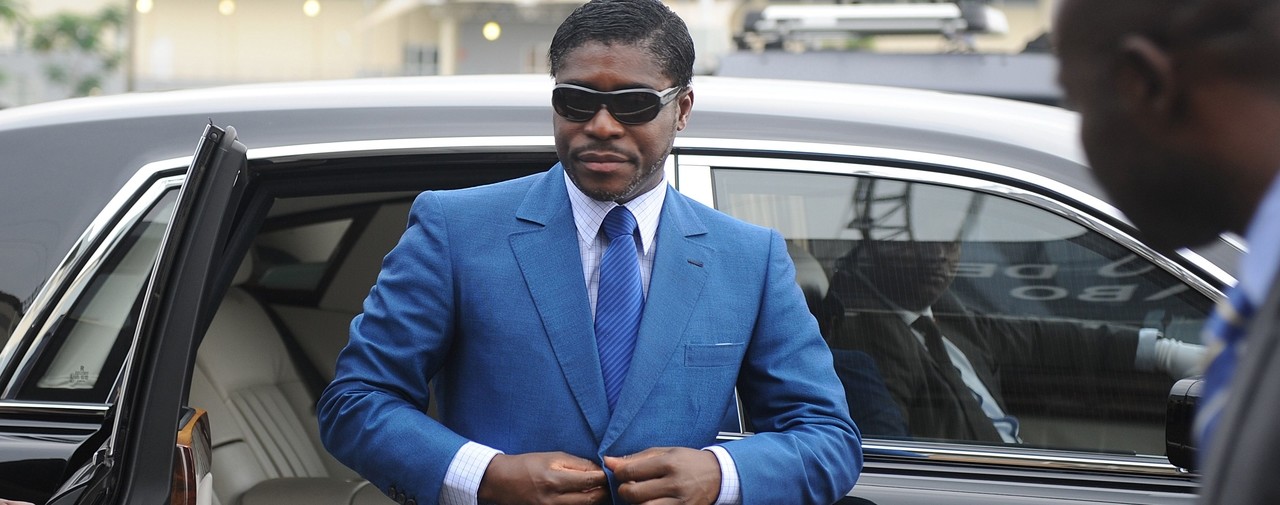By Peter Olorunnisomo – Just a week ago, Africa’s oldest President passed away. He was President Beji Caid Essebi of Tunisia. He ruled only for about 8 years but it is significant that his rule started with the ‘birth’ of the people’s will. It was a revolution that catalysed the Arab spring.

Celebrate Africa’s longest rulership. Equatorial Guinea’s Teodoro Obiang Nguema is celebrating 40 years in power, a record time for any current President in the world.
And the 77 year old leader is grooming his 51 year old son, Teodorin, and his current vice president to take over the top job of the small oil state in central Africa.
Teodoro Obiang came into power in August 3, 1979, he and his officers overthrew his uncle, the blood-thirsty dictator, Francisco Macias Nguema, who was shot two months later.

President Obiang managed to escape the threats of coup d‘état and worked hard to install omnipotent security services under his direct authority.
Since coming to power, he claims to have foiled at least ten coup attempts or assassinations and, at each attempt, Malabo has responded with repression, accusing the army, the opposition or foreign powers alternately.
The latest episode to date, Malabo says he foiled an obscure coup attempt in December 2017. The alleged perpetrators, more than 130 people, including many foreigners, were sentenced in June to prison terms ranging from 3 to 96 years. The threat of coups, imagined or real, has become significant in considering the reasons for the tight reigns to power.
On the other hand, the 1979 coup was described by the authorities as a “Coup de liberté”.
It will be celebrated on Saturday in three cities across the country, including Bata, the economic capital, Mongomo, the president’s hometown, and Djibloho, a new city built in the middle of the jungle with petro-dollar money, symbolizing the transformation of this small country, the only Spanish-speaking country on the continent.
Teodoro Obiang Nguema, first leader of a country with few resources and treated with sufficiency by other African presidents, benefited from the discovery of oil in territorial waters in the early 1990s.
The maps are reworked, the country is getting richer, and is among the highest GDP per capita in Africa: $19,513 per capita in 2017, according to a UN report.
But this new wealth has mainly been used to finance ‘pharaonic’ projects, such as Djibloho’s, which alone consumed nearly half of the country’s budget in 2016 to the detriment of education or health.
Life expectancy thus stagnates below 60 years in the country.
At the same time, Equatorial Guinea is regularly cited by NGOs as one of the most corrupt countries in the world, preferring to invest in luxury private mansions in Europe.
The president’s son, Teodorin Obiang, appointed vice-president in 2012, was sentenced in 2017 in Paris to three years in prison and a €30 million fine in the “ill-gotten property” case, a decision he appealed.
The procedure does not hinder succession planning. At the end of November, he led his first Council of Ministers. While his father’s portrait is omnipresent on the walls of Malabo and the rest of the country, he prefers to appear on social networks, between political summits, Rio carnival and diving session among sharks.
Teodoro Obiang, for his part, shows his contempt for all “Western” critics of his management and human rights violations.
One of the main opposition parties, Citizens for Innovation (CI), was dissolved in February 2018 following the November legislative elections.
Opponents are frequently arrested, and many of them have found refuge abroad, particularly in Spain, a former colonial power.
On the other hand, the oldest head of state continues to welcome many of his counterparts from the continent for the end of difficult months or regimes. Yahya Jammeh, threatened with sanctions and extradition linked to her dictatorial governance in Gambia for 22 years, found refuge in Malabo in early 2017.
The Oil Factor
Not much is mentioned of Equatorial Guinea, one of the oil and gas wealthiest country in Central Africa.
According to the International Monetary Fund (IMF) latest estimate, the Central African nation boasted of a GDP of 13.32 billion US dollars in 2018.
The figure which is 4.5 times that of Kenya ahead of all African countries, excluding richer island nations (Seychelles and Mauritius).
The nation of 1.2 million is, working to boost the standard of living of its citizens through a socio-economic transformation strategy fuelled by its oil wealth.
The country’s Minister of Mines and Hydrocarbons Gabriel Mbaga Obiang at the African and international industry stakeholders, called on African national oil companies to engage with one other constantly to explore joint-venture opportunities and projects across the continent.
According to the Finance and Economic Planning minister, Cesar Mba Abogo, oil has been a blessing to the Nation.
“The way we have managed the oil resources is through what we call” Economic Conferences” Oil was discovered here in the mid 90s and right after that in 1997, the country organised the first Economic Conference which brought together private sectors, public sector, civil society, international partners and development partners to discuss ways the oil revenue should be used,” he said.
Abogo noted that the country was devastated after all that she went through, hence in 1997, the idea was to prepare the basic infrastructures that the country had.
A development plan, a vision of President, Teodoro Obiang Nguema Mbasogo together with all the institutions of the Republic and international partners, the idea was for the country to invest in infrastructures and also for the enablement of the development of the private sector and to enhance in the living condition of the people.
“You know very well that in 2014, the decrease in the oil prices was a bad news for all of us. So in the last two years, we have been trying to adjust the economy without impacting a lot on the social aspect and then controlling a little bit on capital expenditures, and also working aggressively in changing the business climate of the country,” he said.
At the 54th Annual Meeting of the Africa Development Bank held in Malabo, Equatorial Guinea, President of the Bank, Akinwuni Adesina urged countries on the continent to break down all barriers to trade and investment.
Abogo reiterated that a couple of months ago, they organised the third national economic conference with the view of establishing a new development strategy with two huge ambitions: namely how to foster industrialization in Equatorial Guinea and how to consolidate the social gains they have achieved over the last ten to fifteen years.
“The idea for all these infrastructures is for them to be the base or foundation of our development because we have invested in schools, hospitals, logistics and infrastructures in general because they are critical components of development,” he added.
The small country in the Gulf of Guinea has taken a leading role on the international stage by joining OPEC, assisting in stabilizing the market and leading efforts for pan-African cooperation in the oil and gas sector.
The capital, Malabo will host the Oil & Gas Meeting Day for services companies in October this year.
Kindly follow us on twitter:@AfricanVoice2









